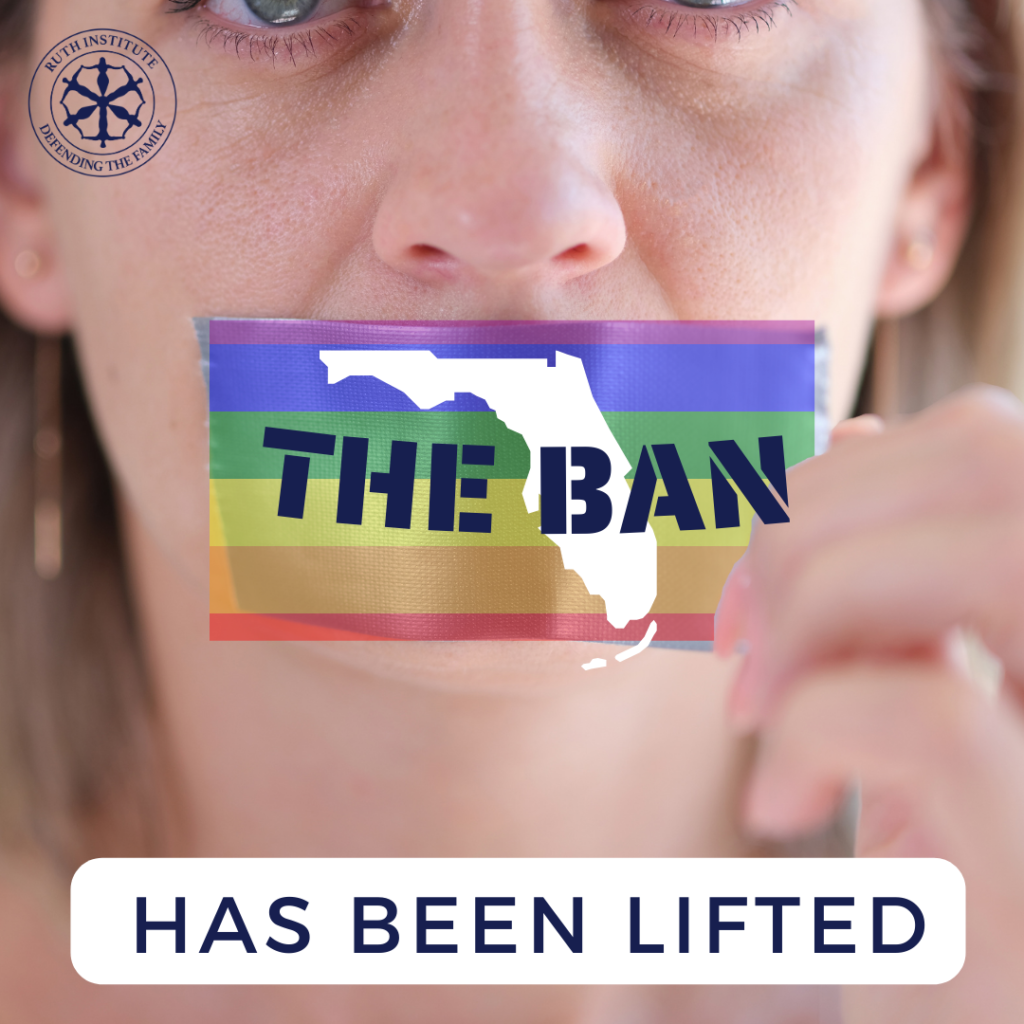
A federal appeals court recently overturned a Tampa, Florida, ban on what gay activists call “conversation therapy” for minors. “This is more accurately called talk therapy, which does no harm and can do a lot of good,” said Ruth Institute President Dr. Jennifer Roback, Ph.D. “Lifting the ban will allow minors with unwanted same-sex attraction to get the help they need.”
The appeals court held that Tampa’s ban violated the First Amendment free speech rights of therapists providing this type of counseling. Morse observed: “Although 20 states ban talk therapy, the voice of reason is beginning to be heard.”
“Talk therapy only involves conversations between the therapist and client. But the same activists who oppose it are fine with so-called gender-transitioning for minors, which often involves radical surgery.”
Activists have touted the discredited claims of Sam Brinton, a recently-fired Department of Energy official, who says he was tortured in “conversion therapy.”
The Ruth Institute interviewed noted forensic psychologist Susan Constantine, who conducted a thorough analysis of Brinton’s claims and concluded that he was “highly deceptive.”
“In a frantic effort to ban speech, activists maintain that those who participate in talk therapy are more likely to suffer from suicidal thoughts and actions, psychological distress, self-harm and substance abuse,” Morse said, “but that’s a red herring.”
“Fr. Paul Sullins, the Ruth Institute’s Senior Research Fellow, has analyzed the data from multiple studies and found no greater risk of these harms by those who undergo talk therapy than those who do not.”
“Rather than appeal to reason or engage in a meaningful dialogue, increasingly, advocates for the sexual revolution opt for suppressing speech. It’s so much easier than actually having to think,” Morse said.
In its lawsuit to have the Tampa ban overturned, Liberty Counsel, representing two licensed therapists in the city, argued that the ban “violated the sacred trust between client and counselor, and runs roughshod over the fundamental right of client determination and the counselor’s cherished First Amendment liberties.”
The appellate court agreed, applying its reasoning in Otto v. the City of Boca Raton, Florida, where it overturned similar bans in Boca Raton and Palm Beach.
“We will continue to advocate for the right of minors with unwanted same-sex attraction to seek the therapy they choose,” Morse said.
Dr. Morse interviewed Fr. Sullins about his important research showing that talk therapy can be helpful. In 2019, Dr. Morse also interviewed Robert Vazzo, the plaintiff in both the Tampa Bay case and the earlier Boca Raton case.
